New Articles
-
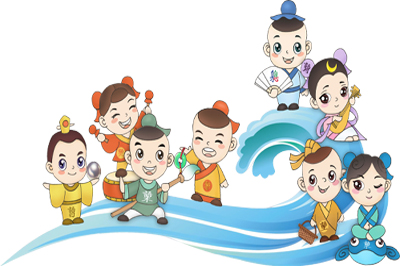 经济学的认知偏蔽与分化催生新思维 2026/02/24
经济学的认知偏蔽与分化催生新思维 2026/02/24【共生经济学·前言】 经济学的认知偏蔽与分化催生新思维 The Cognitive Bias and Fragmentation of Economics as...
-
 如何面对“终极的免费午餐”? 2026/02/22
如何面对“终极的免费午餐”? 2026/02/22《共生经济学》自序 如何面对“终极的免费午餐”? How Should We Face the “Ultimate Free Lunch”? 一、从宇...
-
 全球共生范式下的现代正常国家 2026/02/17
全球共生范式下的现代正常国家 2026/02/17全球共生范式下的现代正常国家 Modern National Normalization under the Global Symbiotic Paradigm ...
-
 论殖官主义:政权更迭为何不能终结人民的苦难? 2026/02/16
论殖官主义:政权更迭为何不能终结人民的苦难? 2026/02/16论殖官主义:政权更迭为何不能终结人民的苦难? Chinese Reproductive Officialdom: Why Regime Change Has Not...
共生思想理论前沿
THE THEORY
-
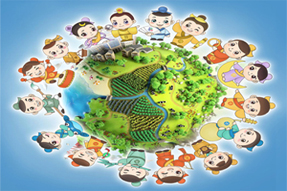
-

-

-
 关于中文“共生”翻译及对应的人、事、物之说明
关于中文“共生”翻译及对应的人、事、物之说明关于中文“共生”翻译及对应的人、事、物之说明 ——Symbiosism:Charles Thomas Taylor &Qian hong又一次量子缠绕...
查看详细说明
Speech
-
 三大自组织货币的共生格局——宏观世界之数字货币 2021/07/08
三大自组织货币的共生格局——宏观世界之数字货币 2021/07/08三大自组织货币的共生格局 ——宏观世界之数字货币 钱 宏 The Institute for Global Symbiosism(...
-
 新汉字yǜ的释义 2019/11/16
新汉字yǜ的释义 2019/11/16语从金音玉(Yǜ):金口玉言,一诺千金,性人诚恳、执信; &n...
-
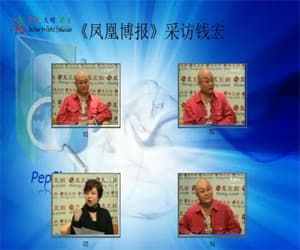 钱宏:中国的真实经验与未来走向(凤凰博报专... 2019/11/16
钱宏:中国的真实经验与未来走向(凤凰博报专... 2019/11/16点击播放 中国的真实经验与未来走向《凤凰博报》专访钱宏主持人:...
重新定义企业家在文明中的角色
发布时间:2025/06/03 公司新闻 浏览次数:243
Redefining the Role of Entrepreneurs in Civilization
重新定义企业家在文明中的角色
By Archer Hong Qian
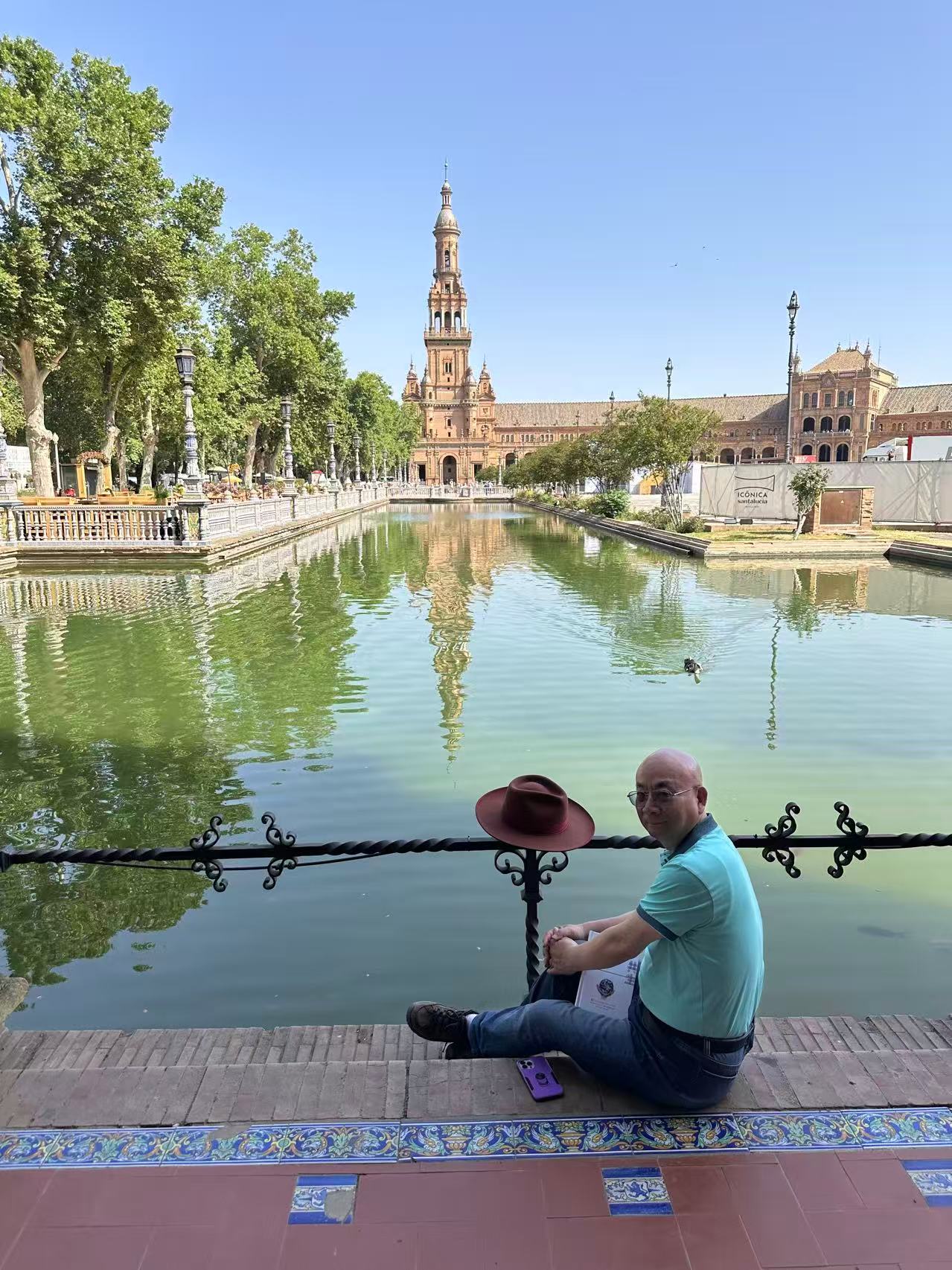
西班牙广场(美国博览会)
一、为企业家正名的必要性
一个国家或准国家(如“家国”)中**企业家 (Entrepreneur)的社会地位,与该国的文明程度 (Level of Civilization)**成正比。**企业家 (Entrepreneur)地位越高,反映国家文明程度 (Level of Civilization)越高,反之亦然。这一关联凸显了为企业家 (Entrepreneur)**正名与重新定义其角色的迫切需要。
日籍学者章慧南强调了企业家 (Entrepreneur)在现代社会的关键角色,从市场创造 (Market Creation)、劳动分工深化 (Deepened Division of Labor)、创新驱动 (Innovation Drive)和经济增长 (Economic Growth)四个维度,清晰展现了其独特价值。他特别指出,企业家 (Entrepreneur)不仅解决当下的生存需求 (Survival Needs),还通过创新 (Innovation)拓展人类生活边界 (Boundaries of Human Life),从智能手机 (Smartphones)到共享经济 (Sharing Economy),无不彰显这一点。
企业家精神 (Entrepreneurial Spirit)的正当性与重要性,呼唤人们以更包容的视角拥抱市场创新 (Market Innovation),摒弃守旧偏见。继管理学倡导“企业文化 (Corporate Culture)”、社会学呼吁“社会企业 (Social Enterprises)”、奥派经济学强调“企业家精神 (Entrepreneurial Spirit)”之后,在中国特殊政治环境下,为**企业家 (Entrepreneur)**价值正名是必要且有益的。
二、共生经济学对企业家的新界定
为**企业家 (Entrepreneur)**正名的努力怎么做都不为过。然而,仅列举其“关键角色”的维度远远不够。主流经济学对“企业家 (Entrepreneur)”这一概念的定义往往不够确切、简明,逻辑上对内涵与外延的划分也不够周延。
我的观点很简单:将“商人 (Merchant)”“富豪 (Tycoon)”“世界首富 (World’s Richest)”等称谓正名为“企业家 (Entrepreneur)”——满足人类普遍的“生命需要 (Life Needs)、生态成长 (Ecological Growth)、生活创新 (Lifestyle Innovation)”。
共生经济学 (Symbionomics)提出的“仨自组织人 (Triple Self-organization People)”(政治 (Political)、经济 (Economic)、文明 (Civilizational)自组织者)取代主流经济学的“理性经济人 (Homo Economicus)”或奥派经济学的“行动人 (Acting Man)”,势在必行,以实现成本最低 (Lowest Cost)、**健康黄金率 (Golden Rule of Health)**最优、**幸福指数 (Happiness Index)最高的降本赋能 (Cost Reduction and Empowerment)**目标。
三、现行经济学研究对象的概念局限
主流经济学将经济行为主体抽象为“理性经济人 (Homo Economicus)”,强调静态理性计算 (Static Rational Calculation);奥地利学派则以“行动人 (Acting Man)”为中心,聚焦主观价值 (Subjective Value)与动态选择 (Dynamic Choice)。然而,在共生经济学 (Symbionomics)视野下,二者均无法完整解释真实的生命经济行为主体 (Life-Economic Actor)。
概念内涵的局限性
- 理性经济人 (Homo Economicus):假设个体以最大化自身利益为目标,忽视社会 (Social)、**生态 (Ecological)和伦理 (Ethical)**维度。
- 行动人 (Acting Man):强调主观选择 (Subjective Choice)和目的性行为 (Purposeful Behavior),但未能充分捕捉企业家 (Entrepreneur)的系统性影响 (Systemic Impact)。
- 仨自组织人 (Triple Self-organization People):共生经济学 (Symbionomics)整合“生命需要 (Life Needs)、生态成长 (Ecological Growth)、生活创新 (Lifestyle Innovation)”三维度,涵盖生物性 (Biological)、社会性 (Social)和创造性 (Creative),更加契合**复杂系统 (Complex Systems)**特征。
概念外延的模糊性
传统称谓如“商人 (Merchant)”“富豪 (Tycoon)”常带贬义或片面性(如逐利 (Profit-Chasing)、贪婪 (Greed)),无法涵盖企业家 (Entrepreneur)的社会价值 (Social Value)。共生经济学 (Symbionomics)重新定义企业家 (Entrepreneur)为满足人类普遍需求的角色,覆盖从科技巨头 (Tech Giants)(如马斯克)到社会企业家 (Social Entrepreneurs)(如推动公益创新 (Public Welfare Innovation)的非营利组织领导者)。例如,传统观点将“世界首富 (World’s Richest)”视为资本积累 (Capital Accumulation)象征,而共生经济学 (Symbionomics)将其重定义为“生活创新 (Lifestyle Innovation)”引领者,如马斯克通过SpaceX推动太空探索 (Space Exploration),扩展人类生存边界 (Survival Boundaries)。
逻辑划分的不周延
传统经济学对企业家 (Entrepreneur)的定义常聚焦单一功能(如熊彼特的创新 (Innovation)、奈特的风险承担 (Risk-Bearing)),忽视其系统性角色 (Systemic Role)。共生经济学 (Symbionomics)的“仨自组织人 (Triple Self-organization People)”通过自组织理论 (Self-Organization Theory),整合生物性 (Biological)(生命需要 (Life Needs))、社会性 (Social)(生态成长 (Ecological Growth))和创造性 (Creative)(生活创新 (Lifestyle Innovation)),逻辑更全面,体现复杂系统 (Complex Systems)中的动态平衡 (Dynamic Balance)。
四、企业家是“仨自组织人”的真实体现
共生经济学 (Symbionomics)定义“仨自组织人 (Triple Self-organization People)”为:
- 政治自组织人 (Political Self-organizer):具备参与**规则制定 (Rule-Making)与社会共治 (Social Co-governance)**的能力。
- 经济自组织人 (Economic Self-organizer):具备市场中自我赋能 (Self-Empowerment)、**降本增效 (Cost Reduction and Efficiency)**的能力。
- 文明自组织人 (Civilizational Self-organizer):具备价值自觉 (Value Awareness)、**生态感知 (Ecological Perception)与生活创新 (Lifestyle Innovation)**能力。
企业家 (Entrepreneur)作为法人“信托 (Trust)”实体,体现这一三位一体,不仅在经济 (Economic)层面选择,还在生存 (Survival)、生态 (Ecology)、生活 (Lifestyle)三大领域进行深层结构性连接 (Structural Connection)与创新 (Innovation)。
企业 (Enterprise)作为信托 (Trust)组织主体,必须展现政治 (Political)、经济 (Economic)、**文化 (Cultural)上的自组织连接平衡 (Self-Organizing Connection Balance)活力。只有充分发挥不同企业生命 (Enterprise Life)自组织连接与再平衡 (Rebalancing)的活力,才能保障社会生活 (Social Life)呈现交互主体共生 (Interactive Subject Symbiosis)**的态势。
这要求企业 (Enterprise)像政府 (Government)、金融 (Finance)、军事 (Military)、教育 (Education)、医疗 (Healthcare)组织一样,具备纯粹的“信托 (Trust)”性质,面向国内外市场 (Markets)、政府 (Government)、社区 (Communities)、家庭 (Families)、个人 (Individuals)提供有效、公平服务,优化降本 (Cost Reduction)、赋能 (Empowerment)、信任 (Trust)、健康 (Health)、和平 (Peace)五因交互性 (Interactivity),减少能耗 (Energy Consumption)、提升能效 (Energy Efficiency),避免特权阶层的浪费 (Waste)与欺诈 (Fraud)。
研究方向
- 仨自组织人的理论意义 (Theoretical Significance of Triple Self-organization):
- “政治 (Political)、经济 (Economic)、文明 (Civilizational)”三分法提供多维视角,超越“理性经济人 (Homo Economicus)”。可探索三者交互机制 (Interaction Mechanism),如**政治自组织 (Political Self-organization)在区块链式去中心化治理 (Blockchain-Style Decentralized Governance)**中的体现。
- “文明自组织人 (Civilizational Self-organizer)”的价值自觉 (Value Awareness)与生态感知 (Ecological Perception)可与ESG (ESG)(环境 (Environmental)、社会 (Social)、治理 (Governance))框架兼容。
- 企业作为信托 (Enterprise as Trust):
- 借鉴信托法 (Trust Law)原则(如忠诚义务 (Loyalty Duty)、审慎义务 (Prudence Duty))设计企业机制 (Enterprise Mechanism)。
- 构建降本 (Cost Reduction)、赋能 (Empowerment)、信任 (Trust)、健康 (Health)、和平 (Peace)五因交互性指数 (Interactivity Index),评估企业 (Enterprise)、政府 (Government)、**国际组织 (International Organizations)**的行为状态。
- 社会共生与全球化3.0 (Social Symbiosis and Globalization 3.0):
- 明确全球化3.0 (Globalization 3.0)特征,与贸易 (Trade)(1.0)、金融 (Finance)(2.0)全球化对比。
- 通过全球治理机制 (Global Governance Mechanism)(如国际税收协议 (International Tax Agreements))解决不平等 (Inequality),促进交互主体共生 (Interactive Subject Symbiosis)。
五、共生经济学与GDE指数的意义
经济学 (Symbionomics)以“仨自组织人 (Triple Self-organization People)”为核心,倡导以资源能效 (Resource Efficiency)为导向的GDE (Global Dynamic Efficiency)指数,取代以资本增值 (Capital Growth)为核心的GDP (GDP),在理论与实践上意义深远。
1. 共生经济学的理论创新
- 核心理念 (Core Idea):超越竞争范式 (Competition Paradigm),强调经济主体 (Economic Agents)(个人 (Individuals)、企业 (Enterprises)、国家 (Nations))在资源共享 (Resource Sharing)与协同创新 (Collaborative Innovation)中的共生关系 (Symbiotic Relationship),与生态学 (Ecology)共生理论契合,注重互利 (Mutual Benefit)而非零和 (Zero-Sum)。
- 理论对比 (Theoretical Comparison):
- 比“理性经济人 (Homo Economicus)”更关注系统性福祉 (Systemic Well-being)。
- 比“行动人 (Acting Man)”更强调协作 (Collaboration)与生态平衡 (Ecological Balance)。
- 比绿色经济 (Green Economy)更具体,提出“自组织 (Self-Organization)”与“健康黄金率 (Golden Rule of Health)”的可操作目标 (Operable Goals)。
- 案例 (Case):丹麦风能产业 (Wind Energy Industry)通过企业 (Enterprise)、政府 (Government)、社区 (Community)协作,实现高能效 (High Efficiency)、低环境成本 (Low Environmental Cost),体现**共生 (Symbiosis)**原则。
2. GDE指数的实践价值
- 从GDP到GDE (From GDP to GDE):GDP (GDP)衡量货币化产出 (Monetized Output),忽视资源 (Resource)、环境 (Environmental)、社会成本 (Social Costs)。GDE (Global Dynamic Efficiency)以资源能效/能耗 (Resource Efficiency/Energy Consumption)为导向,揭示经济活动的真实成本 (Costs)与效益 (Benefits)。
- 诊断失衡 (Diagnosing Imbalance):GDE (GDE)量化资源利用 (Resource Utilization)、能源效率 (Energy Efficiency)、生态影响 (Ecological Impact)的差异。如,中国高GDP (GDP)可能掩盖能耗 (Energy Consumption)与污染 (Pollution),GDE (GDE)可暴露问题,推动一步到位转型 (Transformative Change)。
- 实施路径 (Implementation Path):GDE (GDE)整合能源 (Energy)、排放 (Emissions)、效率 (Efficiency)、**福祉 (Well-being)**数据。国际能源署2023年数据显示,**可再生能源 (Renewable Energy)**占全球30%,**GDE (GDE)**可指引政策优化。
3. 全球化3.0背景
全球化3.0 (Globalization 3.0)由美国等国引领,从支配 (Domination)与依赖 (Dependency)转向共生自组织平衡 (Symbiotic Self-Organizing Balance)。GDE (GDE)契合这一趋势,鼓励各国通过资源优化 (Resource Optimization)与创新 (Innovation)“入局 (Join)”,而非依赖保护主义 (Protectionism)或民族主义 (Nationalism)。
4. 川普的“不干预”与全球化3.0
- 不干预 (Non-Intervention):川普或指美国不再为不愿改革的国家承担经济 (Economic)或地缘成本 (Geopolitical Costs),推动市场化改革 (Market-Based Reform)融入全球化 (Globalization)。
- 自律入局者 (Self-Disciplined Entrants):适应全球化3.0 (Globalization 3.0)规则的国家 (Nations)、企业 (Enterprises)、个人 (Individuals)将繁荣 (Prosper),否则或因固步自封 (Stagnation)而出局 (Exit)。
- 共生启示 (Symbiotic Insight):为全球化3.0 (Globalization 3.0)提供哲学基础 (Philosophical Foundation),通过创新 (Innovation)与协作 (Collaboration)构建资源能效 (Resource Efficiency)为核心的全球经济秩序 (Economic Order)。
六、从“商人/富豪”到“企业家”:价值哲学的回归
共生经济学 (Symbionomics)将“商人 (Merchant)”“富豪 (Tycoon)”“世界首富 (World’s Richest)”正名为满足“生命需要 (Life Needs)、生态成长 (Ecological Growth)、生活创新 (Lifestyle Innovation)”的企业家 (Entrepreneur),不仅是修辞,更是哲学范式还原 (Philosophical Paradigm Restoration):
- 反向脱魅与重赋价值 (Demystification and Revalorization):超越“逐利 (Profit-Chasing)”或“财富 (Wealth)”定义,以生命创造 (Life Creation)、系统连接 (Systemic Connection)、**社会启迪 (Social Inspiration)**为底色。
- 意义 (Significance):
- 化解对“资本 (Capital)”或“富人 (The Rich)”的偏见;
- 提升对企业家 (Entrepreneur) **文明角色 (Civilizational Role)**的认知;
- 将创业精神 (Entrepreneurial Spirit)与国家治理 (National Governance)、社会组织 (Social Organization)、**文化创新 (Cultural Innovation)**本体性结合。
章慧南的“双重角色 (Dual Role)”评论切中要害:企业家 (Entrepreneur)既解决生存 (Survival),又拓展生活边界 (Life Boundaries)。
七、结构转型:从GDP到GDE的范式革命
仅讨论企业家 (Entrepreneur)角色维度不够,需对应系统核算转型 (Systemic Accounting Transformation):
- GDP到GDE (From GDP to GDE):GDP (GDP)反映物的增量 (Material Growth),GDE (Global Dynamic Efficiency)衡量“人+自然+社会 (People + Nature + Society)”的互惠效率 (Mutual Efficiency)。
- 范式跃迁 (Paradigm Leap):从静态增长 (Static Growth)到动态健康 (Dynamic Health),支持全球化3.0 (Globalization 3.0)的资源高效 (Resource Efficiency)、平衡框架 (Balanced Framework)。
八、文明抉择:入局还是出局?
共生经济学 (Symbionomics)对全球化3.0 (Globalization 3.0)格局提出尖锐判断:
- 固守“特色叙事 (Characteristic Narratives)”或“政治正确 (Political Correctness)”的国家将在结构失衡 (Structural Imbalance)中出局 (Exit)。
- 川普的“不干预 (Non-Intervention)”揭示新逻辑:**GDE (GDE)**激励机制自然分化“入局者 (Entrants)”与“出局者 (Exiters)”。
企业家 (Entrepreneur)作为生活创新 (Lifestyle Innovation)催化剂,是:
- **文明新陈代谢 (Civilizational Renewal)**的主力;
- 全球化3.0 (Globalization 3.0)的核心文化生产力 (Cultural Productivity);
- 国家**入局 (Join)**与否的决定性标志。
九、从“企业家”到“仨自组织人”,从GDP到GDE,从全球化2.0到3.0
“仨自组织人 (Triple Self-organization People)”重新定义企业家 (Entrepreneur),统一生命 (Life)、生态 (Ecology)、创新 (Innovation)。共生经济学 (Symbionomics)与GDE (GDE)为全球转型提供框架,在全球化3.0 (Globalization 3.0)中具前瞻性 (Foresight)与实践价值 (Practical Value)。
企业家 (Entrepreneur)联结的不只是商品 (Goods)与市场 (Markets),更是生命与秩序 (Life and Order)、生态与文明 (Ecology and Civilization)、自由与责任 (Freedom and Responsibility)。若全球化2.0 (Globalization 2.0)推崇金融家 (Financiers)、政治家 (Politicians)、科学家 (Scientists),全球化3.0 (Globalization 3.0)的灵魂则是企业家 (Entrepreneur)——仨自组织人 (Triple Self-organization People)。
国民核算应从资本导向 (Capital-Oriented)的GDP (GDP)转向资源能效 (Resource Efficiency)的GDE (GDE)。**结构失衡 (Structural Imbalance)**一目了然,主权 (Sovereignty)、**民族主义 (Nationalism)或“普世叙事 (Universal Narratives)”将不合时宜。在美国引领的全球化3.0 (Globalization 3.0)**中,国家须革新获“关税谈判协议 (Tariff Negotiation Agreement)”入局 (Join)门票,否则自甘堕落 (Self-Imposed Decline) 出局 (Exit)。
川普有底气对出局者 (Exiters)“不干预 (Non-Intervention)”,拥抱自律入局者 (Self-Disciplined Entrants),体现时代**生活方式创新 (Lifestyle Innovation)与再选择 (Rechoice)**的不二法门!
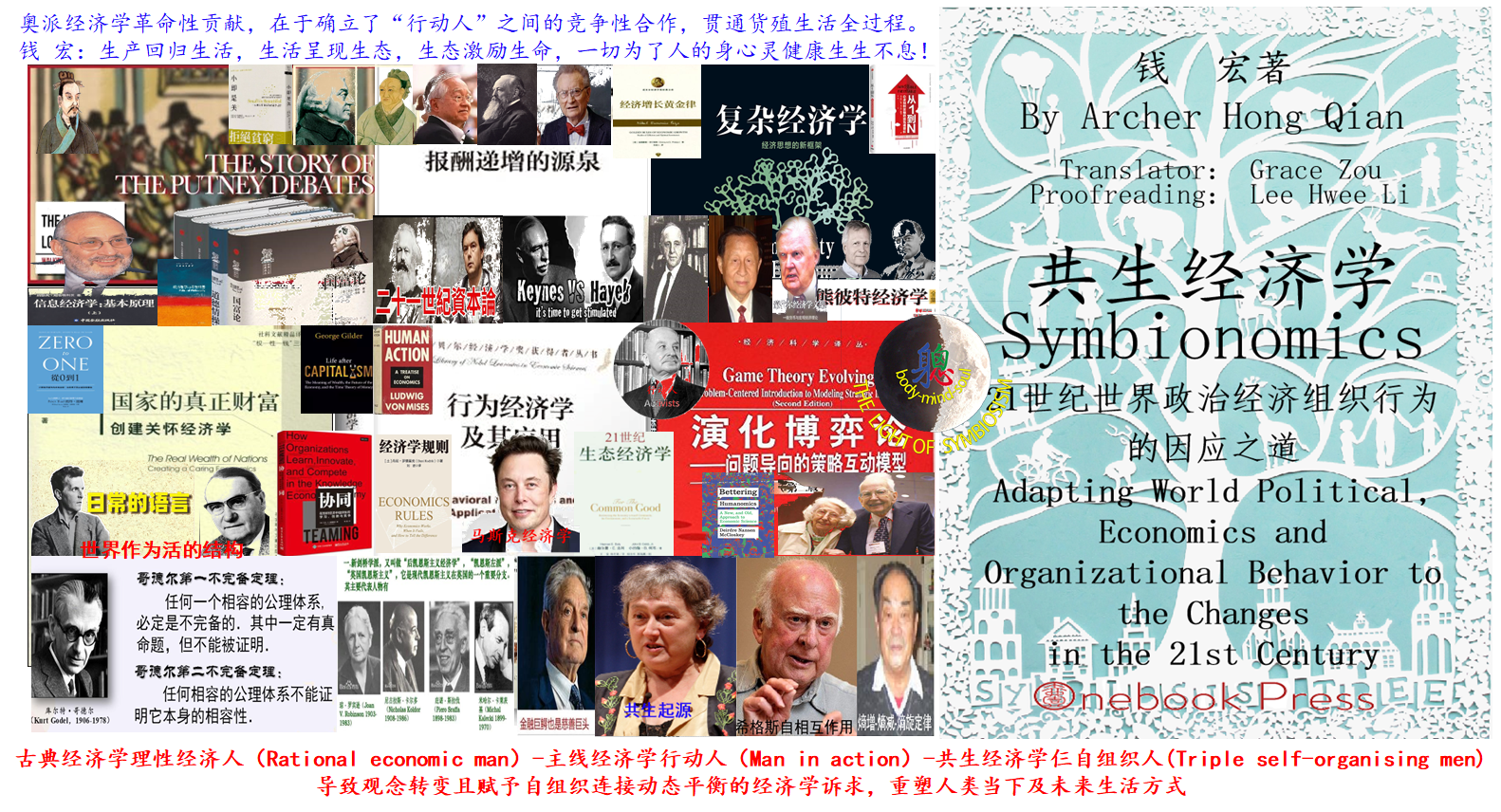
Entrepreneurship and Symbionomics:
Redefining the Role of Entrepreneurs in Civilization
I. The Necessity of Redefining and Affirming Entrepreneurs
The social status of entrepreneurs in a nation or quasi-national entity (e.g., a “family-state”) is directly proportional to the level of civilization of that society. A higher social status for entrepreneurs reflects a higher degree of civilization, and vice versa. This correlation underscores the urgent need to affirm and redefine the role of entrepreneurs.
Japanese scholar Zhang Huinan highlights the critical role of entrepreneurs in modern society, emphasizing four dimensions: market creation, deepened division of labor, innovation drive, and economic growth. He underscores their dual role—not only addressing immediate survival needs but also expanding the boundaries of human life through innovation. From smartphones to the sharing economy, entrepreneurs exemplify this transformative impact.
The legitimacy and importance of entrepreneurial spirit call for a more inclusive perspective to embrace market innovation and discard outdated biases. Following management studies’ call for “corporate culture,” sociology’s advocacy for “social enterprises,” and the Austrian School’s emphasis on “entrepreneurial spirit,” this affirmation of entrepreneurs’ value is particularly vital in China’s unique political context.
II. Symbionomics: A New Definition of Entrepreneurs
Efforts to affirm entrepreneurs are never excessive. However, listing dimensions of their “critical role” is insufficient. Mainstream economics often lacks precision and clarity in defining “entrepreneur,” with logical delineations of the concept’s scope and boundaries remaining incomplete.
A simple perspective: redefining terms like “merchant,” “tycoon,” or “world’s richest” as “entrepreneur” aligns with fulfilling humanity’s universal needs—“life needs, ecological growth, and lifestyle innovation.” Symbionomics introduces the “Triple Self-organization People” (political, economic, and civilizational self-organizers) to replace mainstream economics’ “Homo Economicus” (rational economic man) or the Austrian School’s “Acting Man.” This shift is inevitable for achieving the lowest cost, optimal “golden rule of health,” and highest happiness index through cost reduction and empowerment.
III. Conceptual Limitations in Current Economic Studies
Mainstream economics abstracts economic actors as “Homo Economicus,” emphasizing static rational calculations, while the Austrian School centers on the “Acting Man,” focusing on subjective value and dynamic choice. However, neither fully captures the true nature of life-economic actors in the Symbionomics framework.
Conceptual Limitations in Scope
Homo Economicus: Assumes individuals maximize self-interest, ignoring social, ecological, and ethical dimensions.
Acting Man: Emphasizes subjective choice and purposeful action but fails to fully address the systemic impact of entrepreneurs.
Triple Self-organization People: Symbionomics’ framework integrates “life needs, ecological growth, and lifestyle innovation,” encompassing biological, social, and creative attributes, aligning better with complex systems.
Ambiguity in Extension
Traditional labels like “merchant” or “tycoon” carry negative or narrow connotations (e.g., greed, profit-chasing), failing to reflect entrepreneurs’ societal value. Symbionomics redefines entrepreneurs as fulfillers of universal human needs, spanning tech giants like Elon Musk to social entrepreneurs driving nonprofit innovation. For example, while traditional views see “world’s richest” as symbols of capital accumulation, Symbionomics views them as leaders of lifestyle innovation, such as Musk advancing space exploration via SpaceX.
Logical Incompleteness
Traditional definitions focus on single functions (e.g., Schumpeter’s innovation, Knight’s risk-bearing), neglecting entrepreneurs’ systemic roles. Symbionomics’ “Triple Self-organization People” integrates biological (life needs), social (ecological growth), and creative (lifestyle innovation) aspects, offering a more comprehensive logical framework through self-organization theory and dynamic balance.
IV. Entrepreneurs as the Embodiment of Triple Self-organization People
Symbionomics defines the “Triple Self-organization People” as:
Political Self-organizer: Capable of participating in rule-making and social co-governance.
Economic Self-organizer: Empowered to reduce costs and enhance efficiency in markets.
Civilizational Self-organizer: Possessing value awareness, ecological perception, and lifestyle innovation.
Entrepreneurs, as legal “Trust” entities, embody this trinity, making choices not only in economics but also structurally connecting and innovating across survival, ecology, and lifestyle domains.
Enterprises, as Trust-based structures, must exhibit self-organizing vitality in political, economic, and cultural connections. Only by leveraging this vitality can society achieve a state of symbiotic interaction among agents, balancing and rebalancing dynamically.
This requires enterprises, like government, finance, military, education, and healthcare organizations, to embody a pure “Trust” nature, providing effective, fair services to markets, governments, communities, families, and individuals. These services must optimize cost reduction, empowerment, trust, health, and peace—five interactive factors—minimizing energy waste and preventing elite privilege, fraud, or inefficiency.
Research Directions
Theoretical Significance of Triple Self-organization:
The “political, economic, civilizational” trinity offers a multidimensional view, surpassing Homo Economicus. Explore interaction mechanisms, e.g., political self-organization in decentralized governance like blockchain.
“Civilizational self-organizer” aligns with ESG (Environmental, Social, Governance) frameworks, integrating value and ecological awareness.
Enterprise as Trust:
Align with fiduciary duties (loyalty, prudence) to design enterprise mechanisms.
Develop a quantifiable index for the five interactive factors (cost, empowerment, trust, health, peace) to assess enterprises, governments, and global organizations.
Symbiosis and Globalization 3.0:
Define Globalization 3.0’s features, contrasting with trade (1.0) and financial (2.0) globalization.
Address inequality via global governance, e.g., international tax agreements, to foster symbiotic interaction.
V. Symbionomics and the GDE Index: A Paradigm Shift
Symbionomics, centered on “Triple Self-organization People,” advocates replacing GDP (capital growth-focused) with the GDE (Global Dynamic Efficiency) index, emphasizing resource efficiency. This shift holds profound theoretical and practical value.
1. Theoretical Innovation of Symbionomics
Core Idea: Symbionomics transcends competition, emphasizing symbiotic relationships among economic agents (individuals, enterprises, nations) for resource sharing and collaborative innovation, akin to ecological symbiosis.
Comparison:
Outperforms Homo Economicus by focusing on systemic well-being.
Extends beyond Acting Man by prioritizing collaboration and ecological balance.
More actionable than green economics, with “self-organization” and “golden rule of health” as operative goals.
Case: Denmark’s wind energy sector, through enterprise-government-community collaboration, achieves high efficiency and low environmental cost, embodying Symbionomics.
2. Practical Value of GDE
From GDP to GDE: GDP measures monetized output, ignoring resource, environmental, and social costs. GDE, focusing on resource efficiency/energy consumption, reveals true economic costs and benefits.
Diagnosing Imbalance: GDE quantifies differences in resource use, energy efficiency, and ecological impact. For example, China’s high GDP may mask energy and pollution costs, which GDE exposes for transformative change.
Implementation: GDE integrates energy, emissions, efficiency, and well-being data. IEA’s 2023 data shows renewable energy at 30% globally, with GDE guiding policy via efficiency gaps.
3. Globalization 3.0 Context
Globalization 3.0, led by the U.S. and others, shifts from dominance and dependency to symbiotic, self-organizing balance. GDE aligns, encouraging nations to join via resource optimization, not protectionism or nationalism.
4. Trump’s “Non-Intervention” and Globalization 3.0
Non-Intervention: Trump’s stance may mean the U.S. no longer bears costs for un-reforming allies or rivals, pushing market-based reform for global integration.
Self-Disciplined Entrants: Nations, enterprises, and individuals adapting to Globalization 3.0 thrive; others risk exclusion.
Symbionomics Insight: Provides a philosophical basis for Globalization 3.0, building a resource-efficient global order via innovation and collaboration.
VI. From “Merchant/Tycoon” to “Entrepreneur”: A Philosophical Revalorization
Symbionomics redefines “merchant,” “tycoon,” and “world’s richest” as entrepreneurs fulfilling “life needs, ecological growth, and lifestyle innovation.” This is not mere rhetoric but a philosophical shift:
Demystification and Revalorization: Moves beyond “profit” or “wealth” to define entrepreneurs by life creation, systemic connection, and social inspiration.
Impact:
Resolves bias against “capital” or “the rich.”
Elevates recognition of entrepreneurs’ civilizational role.
Integrates entrepreneurial spirit with governance, social organization, and cultural innovation.
Zhang Huinan’s dual-role insight is apt: entrepreneurs address survival while expanding human boundaries.
VII. Structural Transformation: From GDP to GDE
Discussing entrepreneurs’ roles is insufficient without systemic change in metrics:
GDP to GDE Shift: GDP reflects material growth; GDE measures mutual efficiency of “people + nature + society.”
Paradigm Leap: From static growth to dynamic health, supporting Globalization 3.0 via a resource-efficient, balanced global framework.
VIII. Civilizational Choice: Join or Exit?
Symbionomics sharply judges Globalization 3.0’s landscape:
Nations clinging to outdated narratives or “political correctness” face structural imbalance and exclusion.
This critiques institutional and civilizational inertia. Trump’s “non-intervention” reveals a new logic: GDE-based incentives naturally divide “entrants” and “exiters.”
Entrepreneurs, as catalysts of lifestyle innovation, are:
The vanguard of civilizational renewal;
The core cultural force of Globalization 3.0;
The decisive marker of a nation’s entry, via support and empowerment.
IX. From Entrepreneur to Triple Self-organization, GDP to GDE, Globalization 2.0 to 3.0
The “Triple Self-organization People” redefines entrepreneurs, uniting life, ecology, and innovation. Symbionomics and GDE offer an operable framework for global transformation, especially in Globalization 3.0.
Entrepreneurs bridge not just markets and goods but life and order, ecology and civilization, freedom and responsibility. If Globalization 2.0 hailed financiers, politicians, and scientists, Globalization 3.0’s soul is the entrepreneur—the Triple Self-organization Person.
Nations must shift from GDP’s capital focus to GDE’s resource efficiency. Structural imbalances become clear, rendering sovereignty, nationalism, or “universal” narratives obsolete. In the U.S.-led Globalization 3.0, nations must innovate for a “tariff negotiation ticket” to join, or risk exclusion through stagnation.
Thus, Trump’s confidence in “non-intervention” for exiters and protection for disciplined entrants reflects the era’s path: innovation and rechoice in human lifestyles!
企业家是仨自组织人代表(笔记)
写下这个标题,突然想到,一个国家或者准国家(比如家国)的企业家的社会地位,与这个国家的文明程度呈正比例关系。也就是说,企业家的社会地位越高,反映了其所在国家的文明程度越高。反之亦然!
I、为企业家正名的必要性
日籍学者章慧南,评论企业家在现代社会中的关键角色,从市场创造、分工深化、创新驱动和经济增长四个维度,清晰展现了企业家的独特价值。特别是他讲到,深刻认识企业家的双重角色——不仅解决当下的生存需求,还通过创新拓展了人类生活的边界,从智能手机到共享经济,无不彰显了这一点。
企业家精神的正当性与重要性,呼唤人们以更包容的视角拥抱市场创新,摒弃因循守旧的偏见。这是继管理学呼吁的“企业文化”,社会学呼吁“社会企业”,奥派经济学呼吁“企业家精神”之后,在中国特殊政治环境下,为“企业家”价值鼓一呼的好文!
II、共生经济学对企业家概念的新界定
应该说,凡此种种为“企业家”正名的努力,怎么做都不为过。不过,对企业家的“关键角色”,无论列举多少个“维度”都远远不够,为什么呢,这就是包括我们主流经济学家,对于“企业家”这个用来作概念定义语词,不够确切、简明,其揭示的概念内涵与外延的逻辑划分上不够周延。
我的观点很简单,把商人、富豪、世界首富之类的称谓,正名企业家——为满足是个人(世人)皆有的“生命需要、生態成长、生活创新”的人们,就不难发现:
成本最低而健康黄金率最优幸福指数最高(降本赋能)的共生经济学(Symbionomcs)所提出的“仨自组织人”(Triple Self-organization People),取代主流经济学的“理性经济人”(Homo Economicus)或奥派经济学“行动人”(Acting Man),势所必然!
III、现行经济学的研究对象存在概念不周延的问题
主流经济学将经济行为主体抽象为“理性经济人”(Homo Economicus),奥地利学派则以“行动人”(Man of Action)为中心——前者强调静态理性计算,后者强调主观价值与动态选择。然而,在共生经济学(Symbionomics)视野下,这两者都无法完整诠释真实的生命经济行为主体。
- 概念内涵的局限性:
- 传统经济学中的“理性经济人”(Homo economicus)假设个体以最大化自身利益为目标,忽视了社会、生态和伦理维度。而奥派经济学的“行动人”(acting man)虽然强调主观选择和目的性行为,但仍局限于个体行动,未能充分捕捉企业家的系统性影响。
- 共生经济学的“仨自组织人”通过“生命需要、生态成长、生活创新”三个维度,突破了单一的经济理性,涵盖了生物性、社会性和创造性的多重属性。这种三位一体的定义更贴近现代复杂系统的特征。
- 概念外延的模糊性:
- 传统称谓如“商人”“富豪”往往带有贬义或片面性(如逐利、贪婪),无法涵盖企业家的社会价值。共生经济学提出的“企业家”正名,强调其作为满足人类普遍需求的角色,覆盖了从科技巨头(如马斯克)到社会企业家(如推动公益创新的非营利组织领导者)的广泛群体。
- 例如,传统定义可能将“世界首富”视为资本积累的象征,而共生经济学的框架将他们重新定义为“生活创新”的引领者,如马斯克通过SpaceX推动太空探索,扩展了人类生存的可能边界。
- 逻辑划分的不周延:
- 传统经济学的企业家定义往往聚焦于某一功能(如熊彼特的创新、奈特的风险承担),忽视了企业家的系统性角色。共生经济学的“仨自组织人”通过自组织理论,整合了企业家的生物性(生命需要)、社会性(生态成长)和创造性(生活创新),逻辑上更全面,体现了复杂系统中的动态平衡。
IV、企业家是“仨自组织人”的真实体现:超越理性经济人与行动人
共生经济学的仨自组织人(Triple Self-organization People)概念,即:
政治自组织人:具有参与规则制定与社会共治的能力;
经济自组织人:具有在市场中自我赋能、降本增效的能力;
文明自组织人:具有价值自觉、生态感知与生活创新能力。
“企业家”法人(Trust)
既然企业家是仨自组织人,
只有在结构上充分发挥不同企业生命自组织连接平衡与再平衡活力,
这就要求企业组织象政府、金融、军事、教育、
这样,共生经济学的仨自组织人概念,
1. 仨自组织人的理论意义:
“政治、经济、文明”三分法为人类行为提供了多维视角,
“文明自组织人”的“价值自觉”和“生态感知”与当前ESG(
2. 企业作为Trust:
强调企业需具有“纯粹的信托性质”,这与现代信托法(
“降本、赋能、孞任、健康、和平”五因交互性指数的提出,
3. 社会共生与全球化3.0:
强调“交互主体共生”与“再平衡”,方便进一步探讨全球化3.
“避免特权阶层的浪费、欺诈”指向了全球经济中的不平等问题,
V、共生经济学与GDE指数的意义
共生经济学(Symbionomics)以“仨自组织人”为核心,倡导以资源能效为导向的GDE指数,取代以资本增值为核心的GDP,在理论和实践上具有深远意义:
1、共生经济学的理论创新:
核心理念:共生经济学超越了传统经济学的竞争范式,强调经济主体(个人、企业、国家)在资源共享和协同创新中的共生关系。这种范式与生态学中的共生理论(symbiosis)契合,强调互利共存而非零和博弈。
与现有理论的对比:
比主流经济学的“理性经济人”更关注系统性福祉。
比奥派经济学的“行动人”更强调协作与生态平衡。
比绿色经济更具体,提出了“自组织”和“健康黄金率”的可操作化目标。
案例支持:例如,丹麦的风能产业通过企业、政府和社区的协同,实现了高能效和低环境成本,体现了共生经济的原则。
2、GDE指数的实践价值:
从GDP到GDE:GDP以货币化的产出为衡量标准,忽视了资源消耗、环境成本和社会不平等。你的GDE(Global Dynamic Efficiency)指数以“资源能效/能耗”为价值取向,能够更清晰地揭示经济活动的真实成本和效益。
结构性失衡的诊断:GDE指数可以量化各国在资源利用、能源效率和生态影响上的差异。例如,中国的高GDP增长可能掩盖了高能耗和环境污染问题,而GDE指数能直接暴露这些“结构性失衡”,进行一步到位的改变(Transformation)。
实施路径:GDE指数的构建需要整合能源消耗、碳排放、生产效率和社会福祉等多维数据。例如,国际能源署(IEA)的数据显示,2023年全球可再生能源占比升至30%,但各国能效差距显著,GDE指数可为政策制定提供更精准的指引。
3、全球化3.0的背景:
“全球化3.0”指向由美国率先各国主动重塑全球贸易和经济规则的趋势,涉及思维方式、生活方式从支配、依赖性的二元对立互害机制,更新为交互主体共生自组织连接平衡和再平衡机制。GDE指数与这一趋势契合,因为它鼓励各国通过资源优化和创新“入局”,而非依赖保护主义或民族主义叙事。
4、川普的“不干预”与全球化3.0
川普对“自甘出局者”不干预,并保护“自律自由入局者”的繁荣,这与全球化3.0的逻辑相呼应:
不干预的含义:川普的“不干预”可能指美国不再为不愿改革的盟友或对手承担经济或地缘政治成本。例如,川普政府可能推动“美国优先”的贸易政策,鼓励各国通过市场化改革和创新融入全球化,而非依赖援助或保护。
自律自由入局者:这指向那些主动适应全球化3.0规则的国家、企业和个人。反之,可能因固步自封而“出局”。
共生经济学的启示:共生经济学理论为全球化3.0提供了哲学基础,强调通过“仨自组织人”的创新和协作,构建一个以资源能效为核心的全球经济秩序,从而为企业家角色、经济学范式和全球治理提供了全新的视角。
理论深化:“仨自组织人”可以进一步与复杂系统理论结合,明确其在经济、社会和生态系统中的作用。例如,可以借鉴生态学中的“自组织临界性”来分析企业家的创新行为。川普的“不干预”与“保护入局者”进一步印证了唯有通过创新和协作,国家与企业才能在新时代中立足。
VII、“商人/富豪/首富”到“企业家”的正名:价值哲学的回归
共生经济学指出:将“商人、富豪、世界首富”正名为“满足人类生命需要、生态成长与生活创新的企业家”,不仅是语言修辞,更是哲学意义上的范式还原。
这是一种反向脱魅(demystification)与重赋价值(revalorization)的思维:不再以“逐利”或“财富拥有”定义企业家,而是以内在的生命创造、系统连接、社会启迪为其真实底色。这一正名的意义在于:
化解对“资本”或“富人”的偏见;
提升对企业家的文明角色认知;
将创业精神与国家治理、社会组织、文化创新进行本体性结合。
章慧南对企业家“双重角色”的评论正中要害:企业家不仅解决眼前生存,更拓展了人类生活边界。
VIII、结构性转型指标:从GDP到GDE的范式革命
共生经济学进一步提出:仅仅讨论企业家角色的“维度”是不够的,必须对应系统核算机制的转型。这里的关键便是你所倡导的:
从资本价值增减导向的GDP,转向以资源能效/能耗为核心的GDE交互指数。这是从静态的增长逻辑转向动态的生命健康逻辑,也是推动全球化2.0向3.0跃迁的技术-制度基础。
GDP反映的是“物的增量”,GDE反映的是“人+自然+社会”的互惠转化效率;
GDP支持以国家主权与资本导向为中心的政策框架,GDE则要求以生命共生、能量效率、结构均衡为中心的全球新协议。
IX、文明抉择的时刻:入局 or 出局?
共生经济学对全球化3.0的文明格局下国家行为体的评估提出了尖锐而有力的判断:
一切不愿革新、坚持“特色叙事”或“政治正确”的国家,将在结构失衡中出局!
这是一个时代性的判断,反映了共生经济学对制度惰性与文明惯性的深刻批判。你借用川普的“不干预”姿态,揭示出一种新的全球治理逻辑:不再是强行重建秩序,而是通过GDE结构评估与激励机制,让世界自然分化成“入局者”与“出局者”。
这也是为什么共生经济学称企业家为生活方式创新与再选择的不二法门:
企业家即是文明新陈代谢的主力军;
企业精神正是全球化3.0中最根本的文化生产力;
每一个国家是否愿意支持、保护、赋权真正的企业家,成为其能否入局的决定性标志。
X、从“企业家”到“仨自组织人”,从GDP到GDE,从全球化2.0到3.0
“仨自组织人”概念为企业家角色提供了全新的定义,超越了传统经济学的局限,强调生命、生态和创新的统一。共生经济学和GDE指数则为全球经济转型提供了可操作的框架,尤其在全球化3.0的背景下,具有前瞻性和实践价值。
共生经济学论述不仅是为企业家正名,更是揭示了企业家作为时代自组织的接口人物。他们联结的不只是商品与市场,更是生命与秩序、生态与文明、自由与责任。如果说全球化2.0崇尚的英雄是金融家、政治家、科学家,那么全球化3.0的灵魂人物,必然是——企业家即仨自组织人。
同时,国民账户核算标准亦应从以资本增值/减值为价值取向的GDP硬核标准,更改为以资源能效/能耗为价值取向的GDE交互指数。
这样一来,各个国家存在什么样的“结构性失衡”问题就看得非常清楚,任何以主权、民族主义“特色叙事”或政治正确“普世叙事”等抱残守缺固步自封抗拒Transform的口实话术,都将不合时宜。尤其是在美丽国再次率先重塑的全球化3.0大局中,要么自觉主动真的“苟日新,日日新”革新,获得所谓《关税谈判勰议》重新“入局”的门票,要么继续耍猾头自甘堕落而“出局”!
所以,川普有底气说对自甘出局者“不干预”,而拥抱和保护自律自由入局者安全繁荣的真实含义。
也就是当今时代人类生活方式创新与再选择的不二法门!







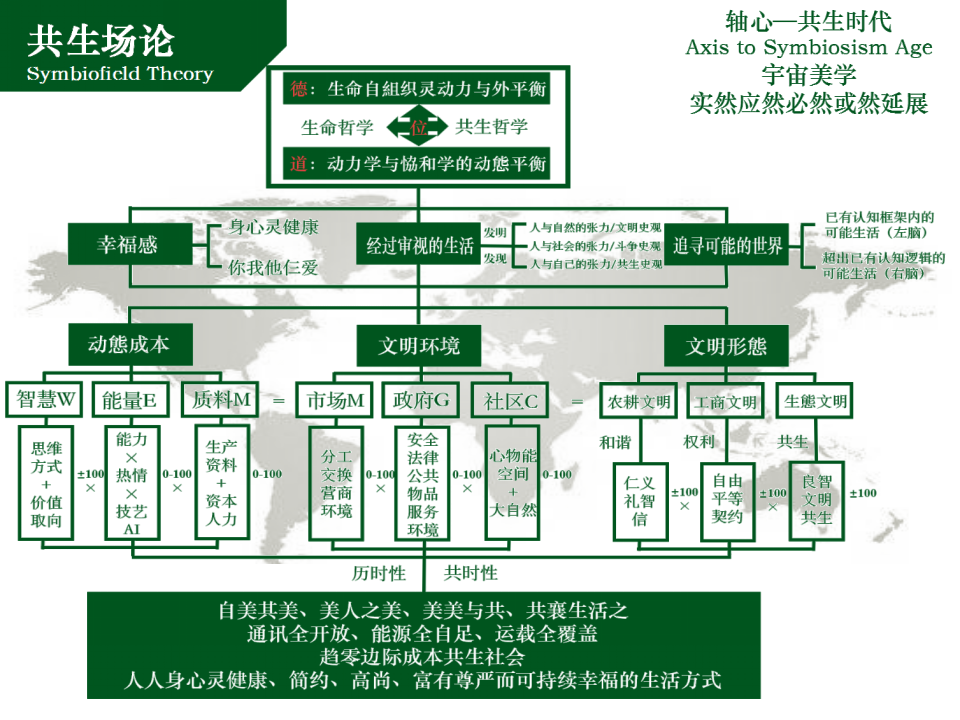
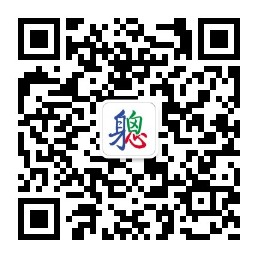




您好!请登录
已有0评论
购物盒子